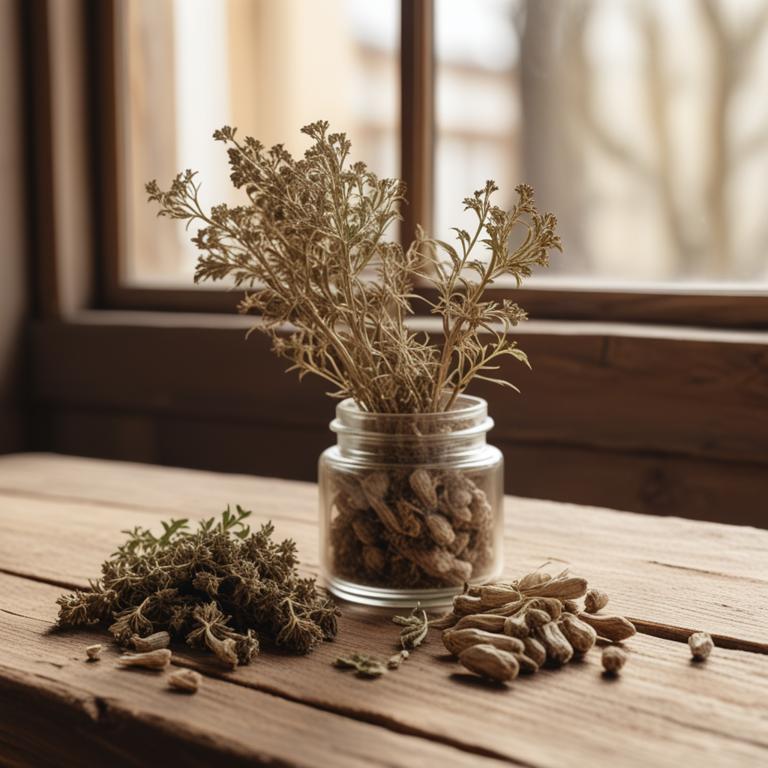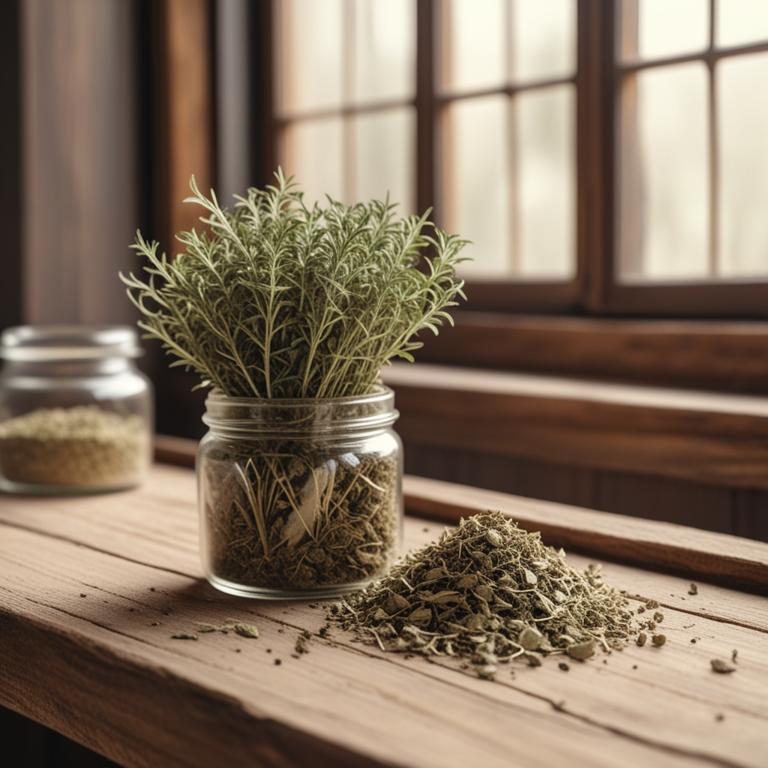Updated: Dec 1, 2024
Throat Pain: Causes, Treatments, and Medicinal Herbal Preparations

Throat pain can be a real nuisance, making it hard to speak, eat, and even breathe.
It can also keep you up at night, and leave you feeling miserable and irritable. Throat pain is often caused by inflammation, dryness, or irritation of the throat tissues. This can be due to a cold or flu, allergies, smoking, or even shouting too much. Sometimes, it can also be a sign of a more serious condition like acid reflux or a sinus infection. Fortunately, there are some effective herbal remedies that can help soothe a sore throat.
Herbs like slippery elm and marshmallow root have anti-inflammatory properties that can help reduce swelling and calm irritation. Licorice root, on the other hand, has antiseptic and anti-inflammatory properties that can help fight off infections and reduce pain. You can use these herbs to make a warm tea, which is a great way to get some relief from throat pain. Simply steep the herbs in hot water, add some honey for sweetness, and drink up. You can also try making a throat spray by mixing the herbs with water and a bit of glycerin.
This can be a great way to get some quick relief when you need it.
Table of Contents
- What causes throat pain to occur?
- What benefits can be expected from using herbs to alleviate throat pain?
- What medicinal herbs are typically used to cure throat pain?
- What herbal preparations are used most frequently for throat pain relief?
- What herbs should be carefully avoided when you have throat pain?
- FAQ
What causes throat pain to occur?
The main causes of throat pain are varied and can range from infections to poor oral hygiene.
One common cause is Tonsillitis, which occurs when the tonsils become inflamed due to a bacterial or viral infection. This can cause redness, swelling, and pain in the throat area. Another cause is Gingivitis, a gum disease that can spread to the throat if left untreated. It happens when plaque and bacteria accumulate around the gums, causing inflammation and pain in the mouth and throat. Tonsil stones, also known as tonsilloliths, are hardened deposits that can form on the surface of the tonsils.
They can cause bad breath, throat pain, and difficulty swallowing. Pharyngitis is the inflammation of the pharynx, the area at the back of the throat. This can be caused by a viral or bacterial infection and can lead to pain, difficulty swallowing, and a sore throat. Lastly, Epiglottitis is a rare but serious infection of the epiglottis, a flap-like structure at the entrance of the larynx. It can cause severe pain, difficulty swallowing, and breathing problems.
This condition requires immediate medical attention.
What benefits can be expected from using herbs to alleviate throat pain?
Using herbs for throat pain can be very helpful.
One of the main benefits is that they often have anti-inflammatory properties, which can reduce swelling and discomfort in the throat. This can make it easier to swallow and talk. Some herbs also have antibacterial properties, which can help fight off infections that can cause throat pain.
This can help the throat heal faster and reduce the risk of complications. Additionally, many herbs have soothing properties, which can calm the throat and provide relief from pain and irritation. They can also help to reduce coughing and soreness, making it more comfortable to rest and recover.
By using herbs for throat pain, you can find natural relief from discomfort and promote healing in a gentle and effective way.
What medicinal herbs are typically used to cure throat pain?

Herbs can be a great natural remedy for throat pain.
Let's take a look at some of the most effective ones. Zingiber officinale, or ginger, is a popular choice for soothing sore throats. Its anti-inflammatory properties help reduce swelling and ease pain. Ginger also has antimicrobial properties that fight off infections that can cause throat pain. Glycyrrhiza glabra, or licorice root, is another herb that's been used for centuries to treat throat problems. It's got anti-inflammatory properties too, which help calm down the throat and reduce pain. Licorice root also helps soothe an irritated throat by coating it with a protective layer that prevents further irritation. Echinacea purpurea, or coneflower, is an herb that's often used to boost the immune system, but it's also great for treating throat pain.
It's got antiviral and antibacterial properties that help fight off infections, which can cause sore throats. Thymus vulgaris, or thyme, is another herb that's been used to treat throat problems. It's got antimicrobial properties that help fight off infections and reduce inflammation. Thyme is also a natural expectorant, which means it helps bring up mucus and other debris that can be stuck in the throat. Mentha x piperita, or peppermint, is an herb that's often used to relieve coughs and soothe sore throats. It's got anti-inflammatory properties that help reduce pain and inflammation in the throat. Peppermint also has a calming effect, which can help reduce stress and anxiety that can exacerbate throat pain. These herbs can be used in teas, capsules, or even applied topically as oils or creams.
They can provide quick relief from throat pain and help prevent future infections.
What herbal preparations are used most frequently for throat pain relief?
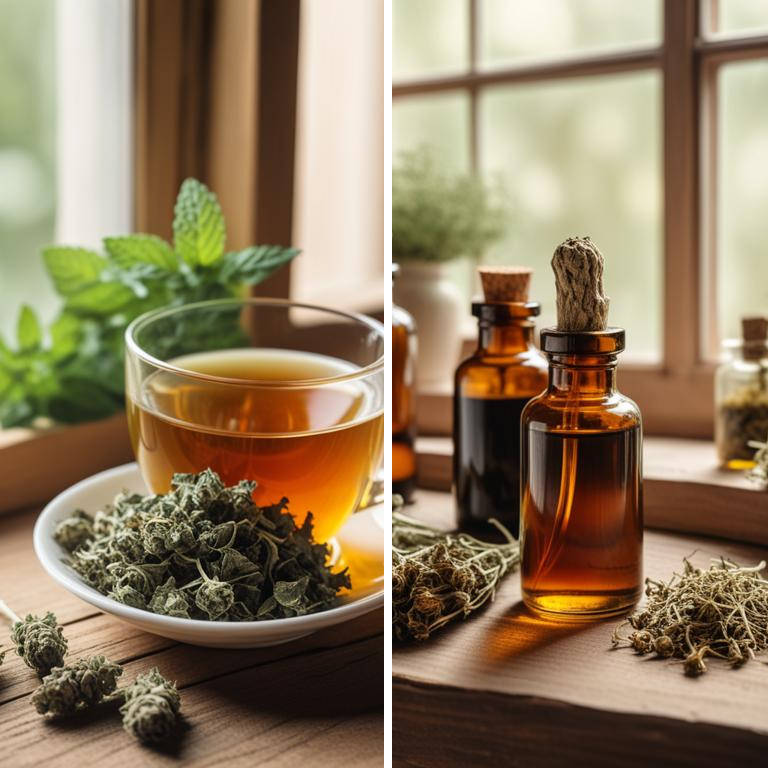
When you have a sore throat, herbal preparations can be a great way to find some relief.
Let's take a look at some of the most common ones. Herbal tea is a popular choice, and it's easy to see why - it's soothing and gentle, and you can make it from a variety of herbs like peppermint, chamomile, and ginger. The heat from the tea helps to ease the pain and inflammation in your throat. Another option is a decoction, which is similar to tea but made from roots, bark, or seeds. These parts of plants are often too tough to infuse, but when you simmer them in water, the healing properties come out. Slippery elm is a great example - its mucilage helps to protect and soothe your throat tissue. You can also use a gargle to ease throat pain. This involves mixing herbs with water and then gargling with it several times a day.
Throat Coat is a well-known product that combines herbs like slippery elm and licorice root to create a soothing, protective barrier. Infusions are another way to get the benefits of herbs into your system. Unlike decoctions, which are simmered, infusions are made by steeping the herbs in hot water for a shorter time. This makes them ideal for delicate herbs like calendula and lemon balm. Lastly, tinctures are a concentrated liquid extract of herbs. They're often taken as a supplement or added to water to make a soothing drink. Tinctures of herbs like echinacea and elderberry can help boost your immune system and reduce inflammation in your throat. These herbal preparations are good for throat pain because they offer a range of benefits - from soothing and calming to protecting and healing.
By choosing the right one for your needs, you can find some much-needed relief and get back to feeling your best.
Additional Resources:
What herbs should be carefully avoided when you have throat pain?
If you're experiencing throat pain, it's essential to be careful with certain herbs.
Foeniculum vulgare, also known as sweet fennel, can be too harsh for a sore throat. The essential oils in this herb can irritate your throat further, making it harder to heal. Sassafras albidum, or sassafras, contains a compound called safrole, which can cause harm to your digestive system, including your throat. When you have a sore throat, you don't want to make things worse, so it's best to avoid sassafras. Hydrastis canadensis, or goldenseal, is another herb that should be used with caution.
It contains a chemical called berberine, which can cause stomach problems, including nausea and vomiting, if taken in excess. If you have a sore throat, you want to focus on soothing it, not making it worse. Cassia auriculata, or cassia, is a common ingredient in some herbal remedies, but it can be problematic for people with throat pain. The saponins in this herb can cause irritation and inflammation in the throat, making your condition worse. Sanguinaria canadensis, or bloodroot, is a herb that should be used with extreme caution, especially if you have a sore throat. The active compound in this herb, called sanguinarine, can be toxic if taken in excess, and it can cause severe stomach problems, including vomiting and diarrhea.
This can make your throat pain worse and even lead to other health issues.
FAQ
Are there any specific herbs that can prevent throat pain?
Ginger has anti-inflammatory properties that can help soothe a sore throat.
Slippery elm can also protect and calm the mucous membranes in the throat. Licorice root has been used to reduce throat irritation and discomfort.
These herbs may help alleviate throat pain and discomfort when consumed as tea or added to food.
Is it safe to use herbal remedies for throat pain during pregnancy?
When you're pregnant and have throat pain, it's best to be cautious with herbal remedies.
Some herbs can be okay in small amounts, but too much or the wrong kind can cause problems.
For example, slippery elm is sometimes used for a sore throat, but it's essential to choose a high-quality product and follow the instructions carefully.
Are there any herbs that can reduce the frequency of throat pain?
Ginger and slippery elm are herbs that may help reduce the frequency of throat pain.
Ginger's anti-inflammatory properties can soothe irritated tissues, while slippery elm's protective coating can shield the throat from further irritation.
Some people find relief from using these herbs in teas or lozenges.
Can i combine different herbal remedies for throat pain?
You can combine herbal remedies for throat pain, but use them in moderation.
For example, you can try mixing slippery elm with licorice root tea to soothe and protect your throat. Some people also find relief by adding honey to their tea for its antibacterial properties and soothing taste.
Experiment with small amounts to find what works best for you.
Related Articles
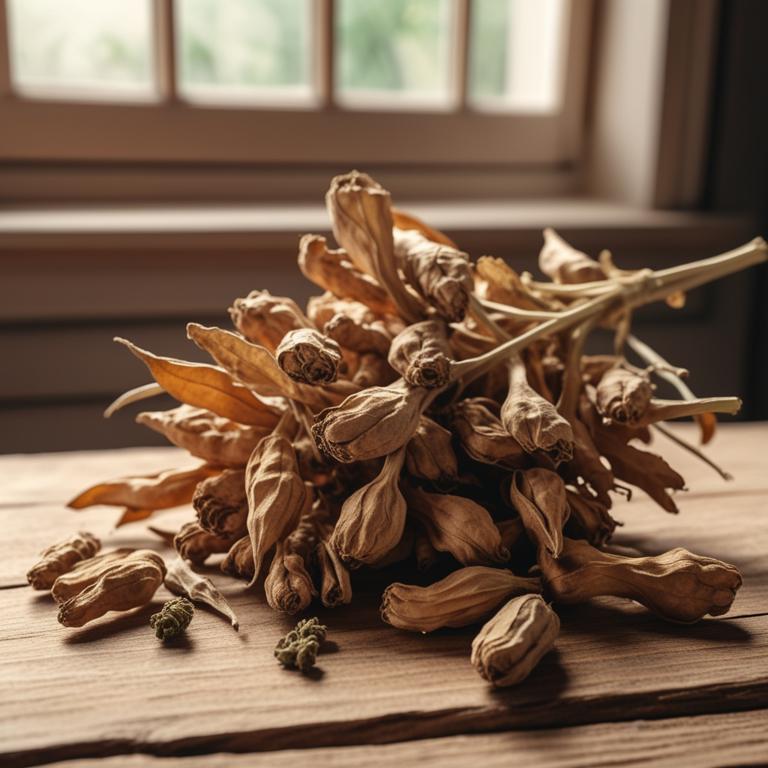
Indigestion Relief with Medicinal Herbs and Herbal Preparations: A Comprehensive Guide

Hemorrhoids Causes, Symptoms, and Natural Herbal Preparations
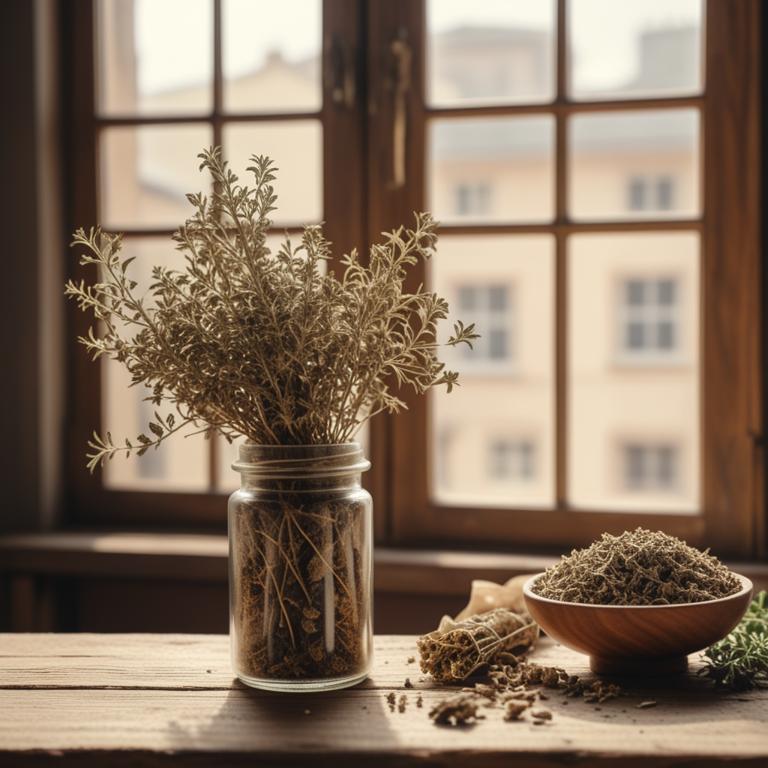
The Causes and Herbal Preparations of Stomach Discomfort
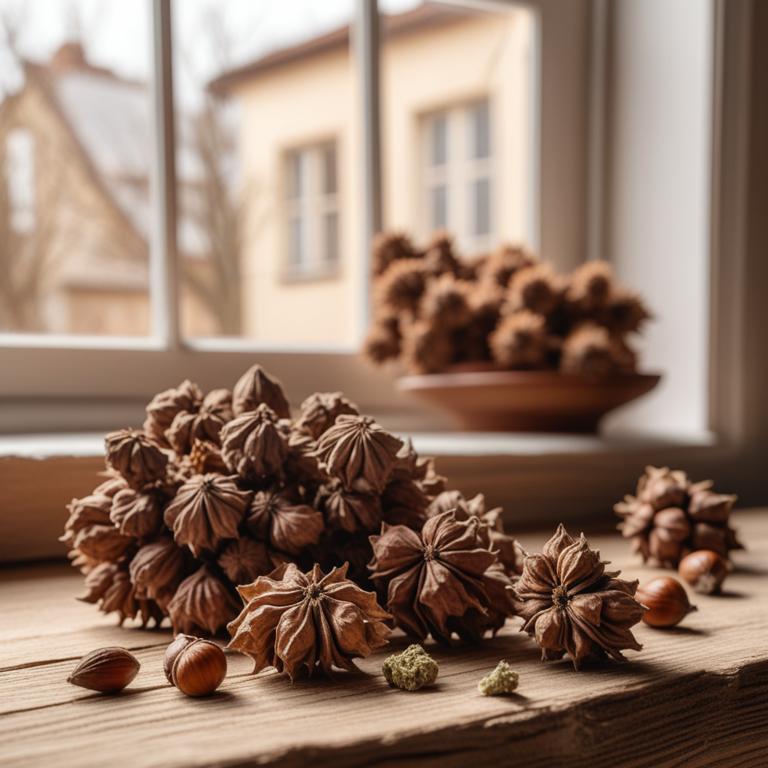
Constipation Prevention and Treatment with Herbal Preparations

Morning Sickness: A Guide to Causes and Herbal Preparations
